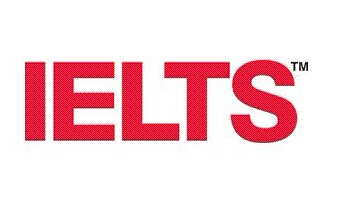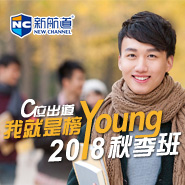托福独立写作真题:包含电子游戏的课程是否有利于孩子的学习
2018-06-05 10:16 供稿单位: 新航道 原创作者:集团托福写作项目组
出国英语考试有哪些 雅思6.5是什么水平 雅思阅读评分标准 托福阅读评分标准 雅思和托福的区别
5月6日托福独立写作题目
“Some people think that some lessons for young children (age 4-8) which include video games can serve as effective and interesting ways of learning, while others think that these lessons are quite distracting and can be seen as a waste of time. What is your opinion and why?
”有人认为某些为儿童开设的(4-8岁)包含电子游戏的课程,是一种有趣并且有效的学习方式;然而,其他人则认为这样课程会让孩子分心,并且会浪费时间。请阐述你的观点及理由。

写作范文
While some people oppose lessons that include video games, considering these games distractions and time wasters, I tend to argue otherwise. When learners are young children, those who are aged between 4 and 8, video games, children’s favorite recreationalactivityfun, actually are advantageous to the effectiveness of learning.
Indeed, it takes more time for a video game to communicate ideas than for a page of a book to do so, because the game breaks an idea down to pieces of information and feeds children slowly. However, this is often unfairly construed as a waste of time. As a matter of fact, the time is worthwhile since children have to take baby steps to learn as their cognitive ability is not yet developed. In addition, video games are often accused of diverting young children’s attention. However, it is only when playing is uncontrolled that the distraction happens. In fact, these games themselves do not distract children and instead they concentrate children’s attention. How could it be possible that any person thinks of other matters while he or she plays video games? The truth is that when children play video games, they play wholeheartedly and effectively receive the information the games convey.
At this point, it is fair to say that the ‘gaming as learning’ method is not unadoptable; it should actually be recommended. As for the merits of this approach, there are quite a few. First, video games translate abstract information into what is more comprehensible—moving pictures, making learning interesting and easy. These pictures illustrate knowledge that is obscure in words. Since children, due to their cognitive inadequacy, are unable to chew the difficult information and therefore feel defeated and show reluctance or aversions to learning, the way video games present knowledge proves to be particularly effective. When knowledge is not hard cold theories or ideas but lively colors, motions or sounds, children learn effectively.
Video games are the effective medium of knowledge also because they deliver knowledge in a way that aligns with children’s learning. Children are always active and sometimes hyperactive, and thus they are seldomhardly attracted by motionless texts or pictures. This is where video games have an obvious advantage: they allow children to put their hands on the screen—to tap, swipe or even doodle, intriguing children and drawing children’s attention. This is when teaching and learning are at the same pace, and when teaching and learning are synchronized, they are both effective.
Although it is not completely unreasonable to stand opposite playing (video games) as learning, the opposition is based on a few misconceptions. There are compelling reasons to persuade those opponents and to believe that video games are more of an advantage for children in the age range of 4 to 8.
更多托福写作真题范文及托福备考资源,敬请关注新航道托福考试频道。

- 新航道,英语成功之道。时间获取新航道英语学习资料和新鲜资讯,请在微信公众账号中搜索「新航道英语」或者「xhdenglish」,或用手机扫描左方二维码,即可获得新航道每日精华内容推送和英语学习经验分享,并参与新航道举办的各项活动。
精彩专题
更多视频荟萃
更多
-
120托福节之李老师:你的托福阅读领路人!
时长:01-18

-
120托福节之冉维:你的托福写作领路人!
时长:01-18
托福预测
更多
-
2017年托福听力考情分析及2018年备考建议
2017 年全年的48 场新托福考试已经落下帷...
- 2017年托福口语考情分析及2018年备考建议
- 2017年托福阅读考情分析及2018年备考建议
- 2017年托福写作考情分析及2018年备考建议(下)
- 2017年托福写作考情分析及2018年备考建议(上)









